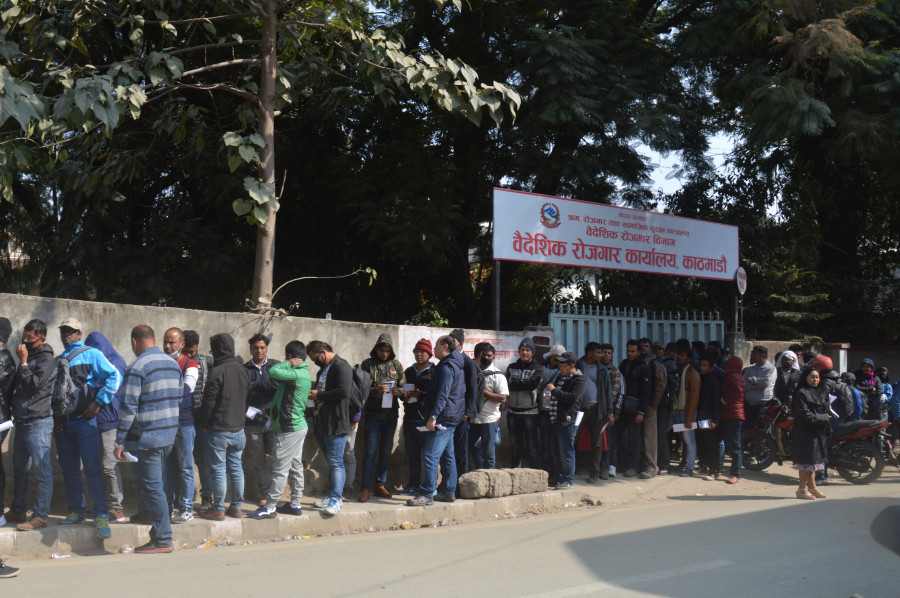Tue, Mar 3, 2026
Money
Remittance inflows reach Rs312b in first four months of current fiscal year
Remittance inflows jumped 36.4 percent to Rs312.26 billion in the first four months of the current fiscal year, bringing a big respite to the country’s foreign currency reserve that has been under pressure due to a ballooning trade deficit.
bookmark
Published at : December 25, 2018
Updated at : December 25, 2018 16:06
Kathmandu
Remittance inflows jumped 36.4 percent to Rs312.26 billion in the first four months of the current fiscal year, bringing a big respite to the country’s foreign currency reserve that has been under pressure due to a ballooning trade deficit.
Money transfers have increased despite a drop in migrant worker departures. According to the latest Macroeconomic Report of Nepal Rastra Bank, the number of outbound workers dropped 27.7 percent to 90,056 individuals this year. The jump in the value of remittance has been attributed largely to an appreciation of the US dollar against the Nepali rupee. In terms of dollar value, the growth rate stood at 23.1 percent.
Migration analyst Arjun Kharel said the rise in remittance inflow could be due to increased use of formal channels by migrant workers to send money back home. “In addition, remittance could have swelled due to a rise in wages abroad,” Kharel said.
Qatar topped the list of destination countries for Nepali migrant workers. A total of 30,632 workers left for Qatar during the first four months, a marginal increase of 0.9 percent year-on-year. Fewer workers went to Malaysia, which used to be a lucrative destination for Nepali migrants. Departures to Malaysia plunged to 2,447 from 40,573 workers previously. Industry watchers cited the country’s stern policy for migrant workers for the sharp fall.
The government stopped issuing work permits to workers wishing to go to Malaysia following a crackdown against agencies illegally charging hopeful migrants hefty fees under various headings. Before approvals were stopped in mid-May, more than 10,000 workers used to receive work permits for Malaysia every month, as per the statistics of the Foreign Employment Department.
Kharel said manpower agencies might have switched their focus to Qatar from Malaysia to retain their businesses. “Likewise, increased labour demand in Qatar due to expanding economic activities might have led to a rise in departures.”
The United Arab Emirates was the second most popular destination with 25,650 worker departures, up 17 percent year-on-year. Despite a 13.14 percent fall in departures, Saudi Arabia came third in the list, with 13,828 Nepali workers leaving for the country.
Most Read from Money
Editor's Picks
Five and half decades of KP Oli in Nepali politics
How Facebook’s algorithm is amplifying one party over all others
Nepal’s IT exports near $1 billion. Can the momentum be sustained?
Parties’ lofty pledges on economy collide with hard realities
Upper house passes tourism bill with tougher Everest rules
E-PAPER | March 03, 2026
×




 9.51°C Kathmandu
9.51°C Kathmandu














